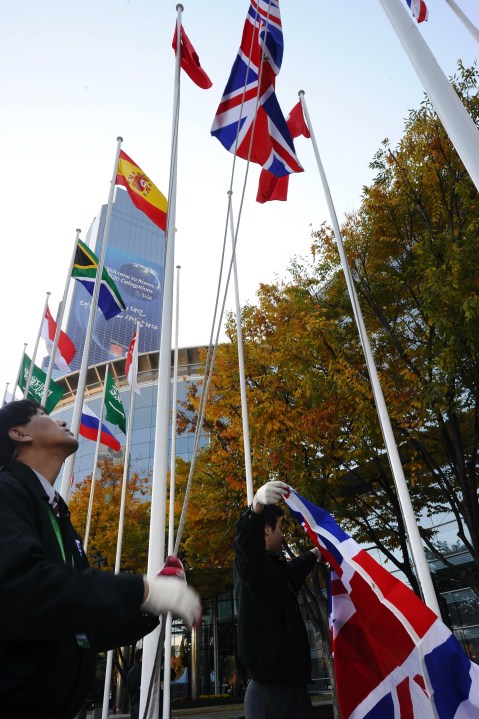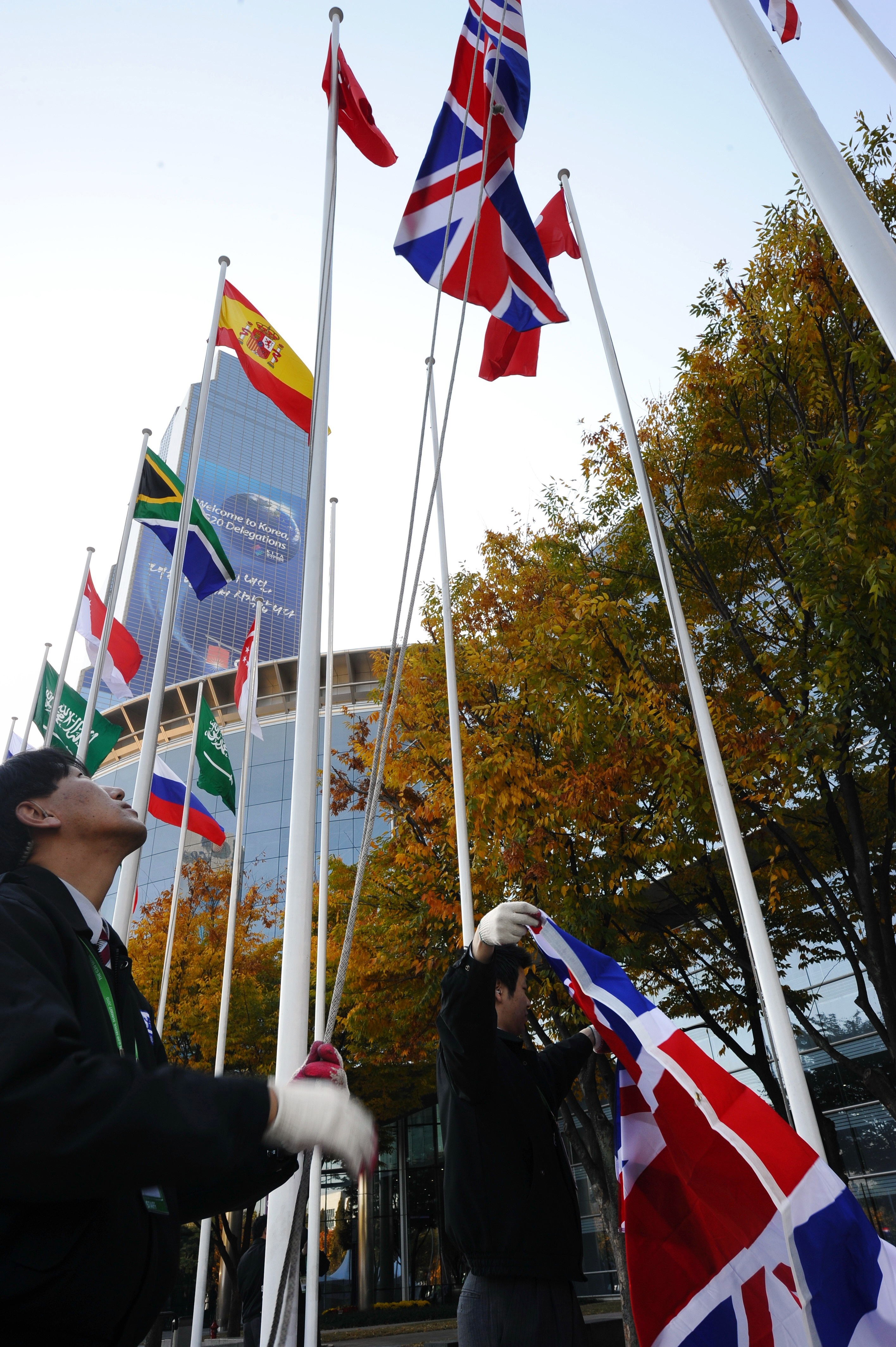 The word ‘isolation’ is used a lot in today’s newspapers, as if Cameron
walking away from the ongoing EU implosion were a self-evident disaster. Pick up the Guardian and you see Britain cast as a leper, a status conferred on her thanks to a tragic miscalculation by a
Prime Minister whose sole aim was to assuage his swivel-eyed Tory MPs and get back on Bill Cash’s Christmas card list. Orwell would have great fun with the language that accompanies the Euro
project: trying to suck up to its tiny elite is seen as a country being outward looking. A PM more focused on the people who sent him to office is seen as a parochialist. Spend too much time in SW1
and you may come to believe this yourself.
The word ‘isolation’ is used a lot in today’s newspapers, as if Cameron
walking away from the ongoing EU implosion were a self-evident disaster. Pick up the Guardian and you see Britain cast as a leper, a status conferred on her thanks to a tragic miscalculation by a
Prime Minister whose sole aim was to assuage his swivel-eyed Tory MPs and get back on Bill Cash’s Christmas card list. Orwell would have great fun with the language that accompanies the Euro
project: trying to suck up to its tiny elite is seen as a country being outward looking. A PM more focused on the people who sent him to office is seen as a parochialist. Spend too much time in SW1
and you may come to believe this yourself.
The truth is that our country has seldom been more integrated with the rest of Europe, by any measure: the amount of the continental workforce we successfully absorb, or our trading, cultural and social links. Technology and globalisation have vastly accelerated cross-border co-operation (independently of the EU). Ryanair has probably done more for European integration than anyone in Brussels. When I take my kids to football training this afternoon, I’ll hear at least half a dozen foreign languages cheering on the other kids. I love that about London. Two of the other football dads are moving to Dubai, where business opportunities are better. People come and go, we’re part of a global economy — and, oddly, this rain-battered island on the periphery of Europe has become a centre of world trade.
Rather than being isolated, Britain is perhaps the most internationally integrated country in the continent. And, yes, I know that CoffeeHousers have plenty to say about that. But if we pull out of the European Union, then the country will remain — if anything — more outward-looking and international than before. Should we regain control of our trade policy, we can better do business with economies that are actually growing. This isn’t a Little England argument, but an internationalist argument. Competitiveness is what matters, and it ought to matter to Europe too. As Niall Ferguson argues in his Civilization, Europe emerged as a power because it was once hundreds of competing polities, while China was one monolithic empire. But now Europe’s response to competition is to ban it, hence the obsession with fiscal union, the City, etc. Today, Ferguson writes in the Times (£), describing the EU17 fiscal union as a ‘suicide pact’.
There is more to our country than its politicians. Treaties signed by men in suits account for just a fraction of its international relations. I’m still hoping Britain can stay in the EU. But the Independent’s front page puts it best today: the EU is leaving Britain. Cameron stayed firm on Thursday — but the EU is moving in a direction that Cameron can’t follow even if he wanted to because he’s hemmed in by public opinion. The October revolution, as no one really calls the last Europe rebellion, was driven by MPs who could not reject plans for a referendum and face their voters. People power was expressed then, a taste of what Cameron could expect if he had signed that Treaty.
Cameron had no choice on Thursday. He’d never get a EU27 Treaty past his party, and it may have triggered his Triple Lock referendum (which bans any treaty which transfers powers to the the EU). Sure, Cameron will take the brickbats and the bouquets today, but as far as I can tell it was Sarkozy, not Cameron, who ruined the chance of an EU27 Treaty — by foisting on Cameron something he knew the House of Commons would never pass. Nick Clegg is pretty much saying that Cameron was all set to cave in, demanding just fig-leaf protection for the City and dropping any demands of the return of powers that he was talking about just three weeks ago. But Sarkozy wouldn’t even grant him the fig-leaf.
Sarkozy, not Cameron, was the wrecker on Thursday night. Perhaps because France wants Britain out of the EU, perhaps because Sarkozy wanted the new Fiscal Union to be a 17-member group that France could better dominate. It’s still not clear.
What is clear is that Britain is now facing a choice. The status quo is not sustainable, for the reasons Owen Paterson outlined in his explosive interview with James Forsyth in this week’s Spectator. If the EU is changing ‘radically’, as Sarkozy says, then so must Britain’s relationships with it. We renegotiate and save our EU membership, as I’d like us to do, or Britain pulls out — choosing not isolation, but world trade. Once upon a time, we did that quite well. We could again.
Indeed, it might be asked: who is the true isolationist? The EU has responded to globalisation by putting up trade barriers, slapping tariffs on imports, disparaging globalisation, subsidising industries that can’t compete globally, ignoring the rise of India, China, Brazil, etc. To borrow a Billy Bragg phrase, theirs is a land with a wall around it. Our horizons are global. So no matter what happens with the EU, isolationism is not an option anyone in this country is considering.








Comments